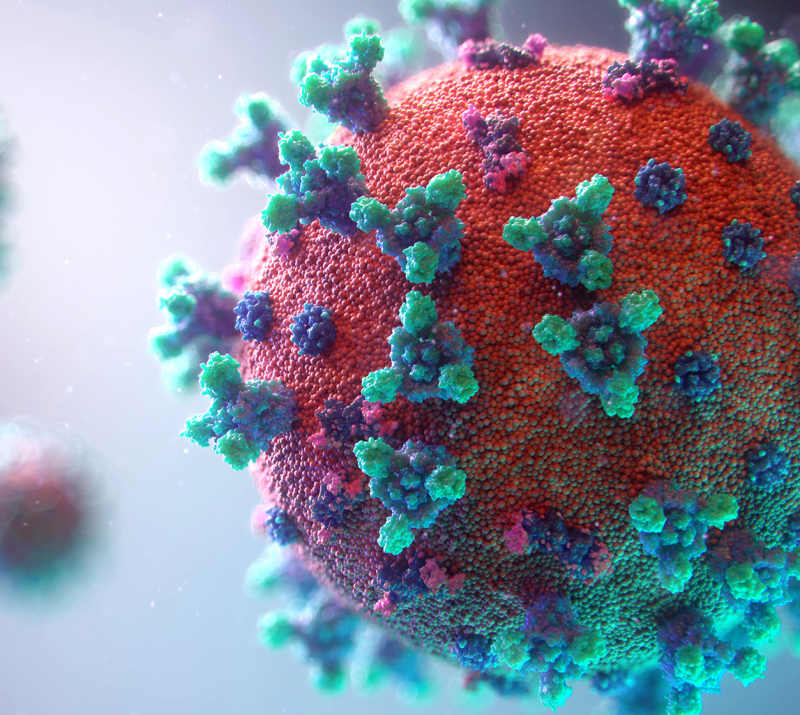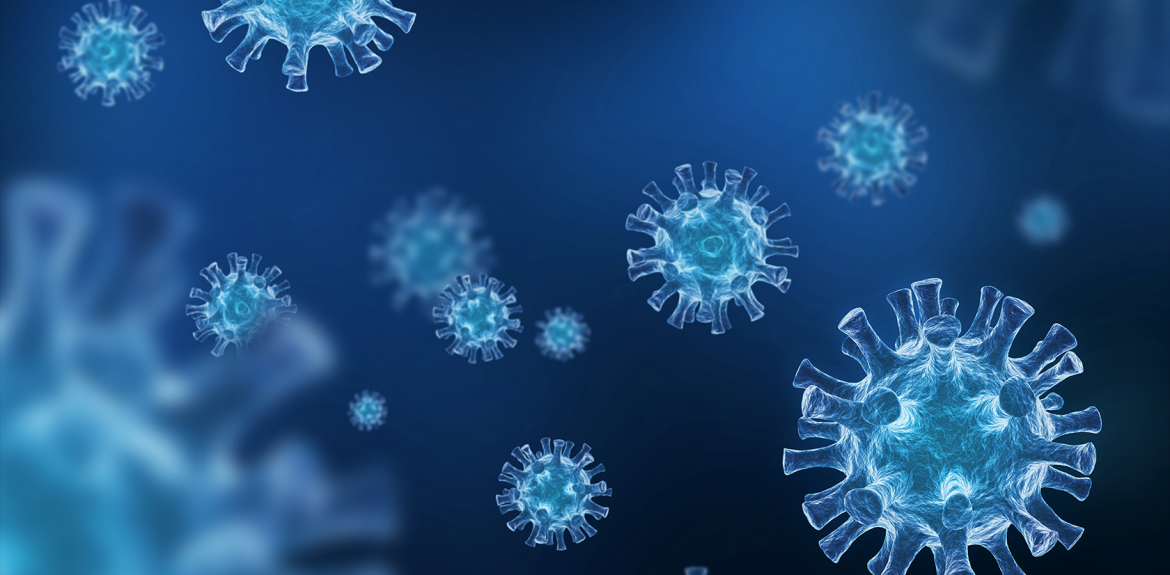
PROJECT OVERVIEW
A multi centre, randomised, controlled, open-label phase 2 study to evaluate the efficacy, tolerability and safety of metabolic cofactor supplementation and hydroxychloroquine combination in COVID-19 patients
https://clinicaltrials.gov/ct2/show/NCT04573153
This study is planned as a Phase II clinical drug research to be conducted in patients diagnosed with COVID-19. Patients will be ambulatory and after the diagnosis/confirmation of diagnosis, will be sent home with their treatment. However, patients may be hospitalised during this initial examination period due to deterioration in their physical health or due to any medical condition which was not present at admission.
The primary objective is to assess the clinical efficacy of the combination of metabolic cofactors supplementation and hydroxychloroquine in COVID-19 patients. For the primary purpose, the proportion of patients who were hospitalised during the course of disease until 14 days after the initial diagnosis of Covid-19 disease will be compared. Patients who were hospitalised during the 14-day period, but at any time point after consenting will be evaluated as an end-point occurrence.
The secondary aim in this study is to evaluate the safety and tolerability of metabolic cofactors supplementation and hydroxychloroquine combination.
The following secondary safety objectives have been identified in this study:
• Number / characteristics of adverse event (AE), Serious Adverse Event (SAE) and treatment discontinuation due to study drug from the beginning of the study to the end of the follow-up period
• Number / features of all changes in haematology parameters evaluated as AE from the beginning of the treatment to the end of the follow-up period.
• Number / characteristics of all changes in selected biochemical parameters evaluated as AE from the beginning of the treatment to the end of the follow-up period.
• The changes in vital signs (systolic and diastolic blood pressures, pulse, respiratory rate, body temperature, pulse oximetry values), baseline values, and the status of treatment and follow-up visits
PROJECT DETAILS
- Category COVID-19

| Protocol Number | COVID-19-MCS | ||||||||||
| Sponsor | ScandiBio Therapeutics AB | ||||||||||
| Study Coordinator | Oktay Olmuşçelik M.D
Medipol University, Bağcılar Research Hospital, İstanbul |
||||||||||
| Site | · Saglik Bilimleri University, Ümraniye Training and Research Hospital, Department of Gastoenterology; İstanbul | ||||||||||
| Indication | Coronavirus Disease 2019 (COVID-19) | ||||||||||
| Study agent | Dietary supplement consisting of serine, L-carnitine tartrate, N-acetylcysteine and nicotinamide riboside | ||||||||||
| Study phase | Phase II | ||||||||||
| Methodology | Open label, randomized controlled design
Treatment arm: Ambulatory-at home-treatment with hydroxychloroquine + dietary supplement consisting of serine, L-carnitine tartrate, N-acetylcysteine and nicotinamide riboside as compared to hydroxychloroquine + dietary supplement placebo |
||||||||||
| Primary objective | This study is planned as a Phase II clinical drug research to be conducted in patients diagnosed with COVID-19. Patients will be ambulatory and after the diagnosis/confirmation of diagnosis, will be sent home with their treatment.
However, patients may be hospitalised during this initial examination period due to deterioration in their physical health or due to any medical condition which was not present at admission. The primary objective is to assess the clinical efficacy of the combination of metabolic cofactors supplementation and hydroxychloroquine in COVID-19 patients. For the primary purpose, the proportion of patients who were hospitalised during the course of disease until 14 days after the initial diagnosis of Covid-19 disease will be compared. Patients who were hospitalised during the 14-day period, but at any time point after consenting will be evaluated as an end-point occurrence. |
||||||||||
| Secondary objectives | The secondary aim in this study is to evaluate the safety and tolerability of metabolic cofactors supplementation and hydroxychloroquine combination.
The following secondary safety objectives have been identified in this study: • Number / characteristics of adverse event (AE), Serious Adverse Event (SAE) and treatment discontinuation due to study drug from the beginning of the study to the end of the follow-up period • Number / features of all changes in haematology parameters evaluated as AE from the beginning of the treatment to the end of the follow-up period. • Number / characteristics of all changes in selected biochemical parameters evaluated as AE from the beginning of the treatment to the end of the follow-up period. • The changes in vital signs (systolic and diastolic blood pressures, pulse, respiratory rate, body temperature, pulse oximetry values), baseline values, and the status of treatment and follow-up visits · Comparison of plasma metabolomics and proteomics (including cytokines) as well as oral and gut microbiota analysis results obtained from two treatment arms |
||||||||||
| Number of subjects | Phase II study will enrol 100 patients
A total of 100 COVID-19 disease patients will be randomized on a 3:1 basis to the combination metabolic cofactors supplementation and hydroxychloroquine or hydroxychloroquine+ placebo in one clinical site in Turkey. |
||||||||||
| Main inclusion criteria | To be included in the study, patients should meet all the following criteria;
· Patients of both genders (females and males) over 18 years of age · Written informed consent obtained from the subjects prior to any procedures related to the study. · Understand all procedures to be applied within the scope of the study protocol · Ambulatory patients with symptoms diagnosed with COVID-19 with Chest tomography (CT) positivity in the last 72 hours · Patients with stable clinical course and who could be treated on an ambulatory basis |
||||||||||
| Main exclusion criteria | Subjects cannot be included in the study if any of the following criteria is met:
· Patients who has partial oxygen saturation below 90% and require immediate hospitalisation after diagnosis · Patients, upon initial examination, decided to be hospitalised at the intensive care-unit · Inability or unwillingness to give written informed consent · At physician’s decision, the trial involvement will not be in patients’ best interest, or any condition that does not allow the protocol to be followed safely. · Patients considered as inappropriate for this study for any reason · Active participation in another clinical study · Uncontrolled Type 1 or type 2 diabetes · Severe liver disease (e.g. Child Pugh score ≥ C, AST>5 times upper limit) · Patients with known severe renal impairment (estimated glomerular filtration rate ≤30 mL/min/1.73 m2) or receiving continuous renal replacement therapy, hemodialysis, peritoneal dialysis · Significant cardiovascular co-morbidity (i.e. heart failure) · Patients with phenylketonuria (contraindicated for NAC) · Known allergy for substances used in the study · Pregnant or breastfeeding patients, or patients with positive pregnancy test in a pre-dose examination · Receipt of any experimental treatment for COVID-19 within the 30 days prior to the time of the screening evaluation. |
||||||||||
| Dosage and duration of therapy | This study was planned as a parallel group, randomized and open label study. After the volunteers sign the informed consent forms, the treatment will be administered on the basis of randomization by the responsible investigator. All treatments will be expected to be administered by the patient at home or hospital. Hydroxychloroquine treatment will be administered at an initial dose of 2×400 mg (oral) followed by 400 mg/day (2×200 mg oral) for a total of 5 days.
The study subjects will be randomized on a 3:1 basis to the cofactor supplementation combination plus hydroxychloroquine treatment or hydroxychloroquine +placebo treatment. During the Phase II study, with a randomization rate of 3: 1, the group who received hydroxychloroquine+placebo treatment as a standard care group will include 25 volunteers; the hydroxychloroquine + cofactors supplementation group will consist of 75 volunteers. The hydroxychloroquine + cofactors supplementation group will be applied the same dosage and duration of the hydroxychloroquine therapy. Additionally, cofactors supplementation mixture will be given for two weeks in doses indicated below (twice/day; one dose in the morning, one dose after dinner):
The total treatment period for the hydroxychloroquine will be 5 days and cofactors supplementation will be for 14 days. On the 14th day, patients will perform a last visit which will be their follow-up visit. |
||||||||||
| Investigational Products | Investigational products will be produced as the test product and will be packed as individual dosages in identical HDPE plastic bottles of 60 mL with a screw cap. Test product will be in the form of powder, and will be dissolved in 200 ml preferably cold water before use. Placebo treatment will include sorbitol only in identical HDPE plastic bottles of 60 mL with a screw cap. | ||||||||||
| Study design | The study comprises three visits:
Visit 1 (Screening; Day 0): The subjects will get the informed consent form and oral information on the study protocol. After clinical and physical examination blood samples will be obtained for routine analysis outlined in the study protocol. Chest tomography (CT) will be performed. An ECG will also be performed. Plasma samples will be taken for advanced metabolomics and proteomics (including cytokines) analysis in Sweden. Saliva and feces samples will be collected for metagenomic analysis and transferred to Sweden to assess changes in oral and gut microbiota during treatment. Whole genome sequencing will not be performed. Eligible study subjects will be invited to the clinic for randomization to the active treatment and standard therapy groups. They will be asked to take the first dose and be observed for development of side effects. Patients who can tolerate the study agents will start to take co-factors supplementation (i.e., 2 dosage daily just after breakfast and dinner) for two weeks. After initial dosing at the hospital patients will be instructed to stay at home during their treatment and will be asked to attend to the investigational site if symptoms are worsened during the 14-day period. Visit 2 (Week 1; Day 7) – This visit will be performed if patient’s condition permits or patient has been hospitalised. If visit is performed, a clinical and physical examination, adverse events recording, metabolomics, proteomics and metagenomics analysis will be repeated as in Visit 1. Visit 3 (Week 2, Day 14 (discharging from the hospital)): Clinical and physical examination, adverse events recording, hematologic and biochemical safety parameters, metabolomics, proteomics, and metagenomics analysis will be repeated as in Visit 1 and Visit 2. After the visit 3, subjects will stop taking their supplements. |
||||||||||
| Study duration | The active treatment duration will be 2 weeks for each subject and the total study duration is estimated as 5 months including patient enrolment to both study phases. | ||||||||||
| Efficacy evaluation | The primary efficacy evaluation will be on the percentage (proportion) of patients requiring a hospitalisation during the treatment period for both arms in COVID-19 patients.
The primary objective is to assess the clinical efficacy of the combination of metabolic cofactors supplementation and hydroxychloroquine in COVID-19 patients based on the proportion of requirement of hospitalisation. In both patient groups, plasma metabolomics and proteomics as well as oral and gut microbiota analysis will be included in the secondary efficacy evaluation. |
||||||||||
| Safety evaluation | Safety will be assessed by monitoring of adverse events, physical examination, vital signs measurements and clinical laboratory tests. | ||||||||||
| Statistical
Methodology |
Statistics for the primary outcome parameter will be analysed by Mann-Whitney U test or t-test depending on the results of the normality test. For the secondary and third outcome parameters, one-way repeated measures ANOVA will be performed. |
